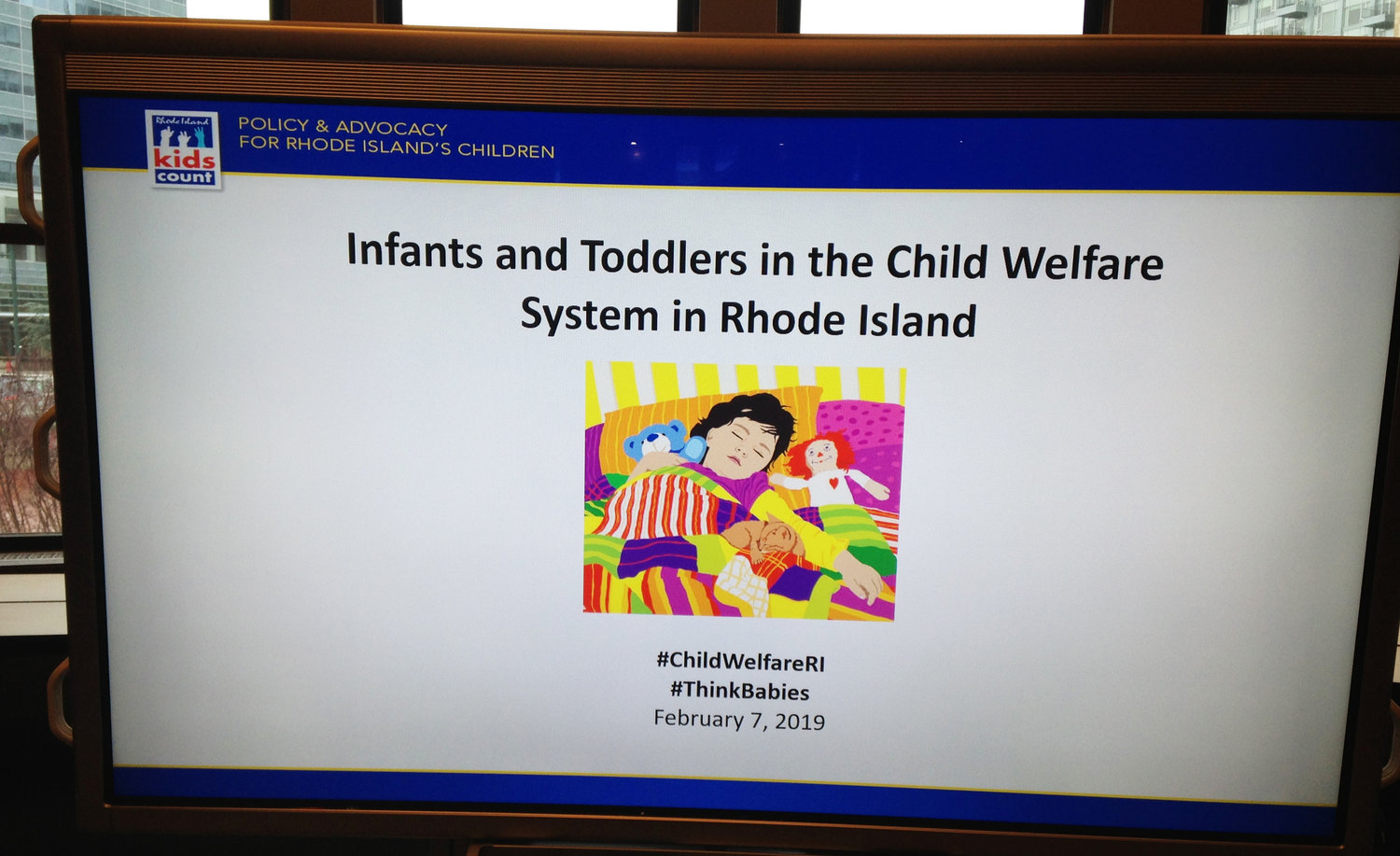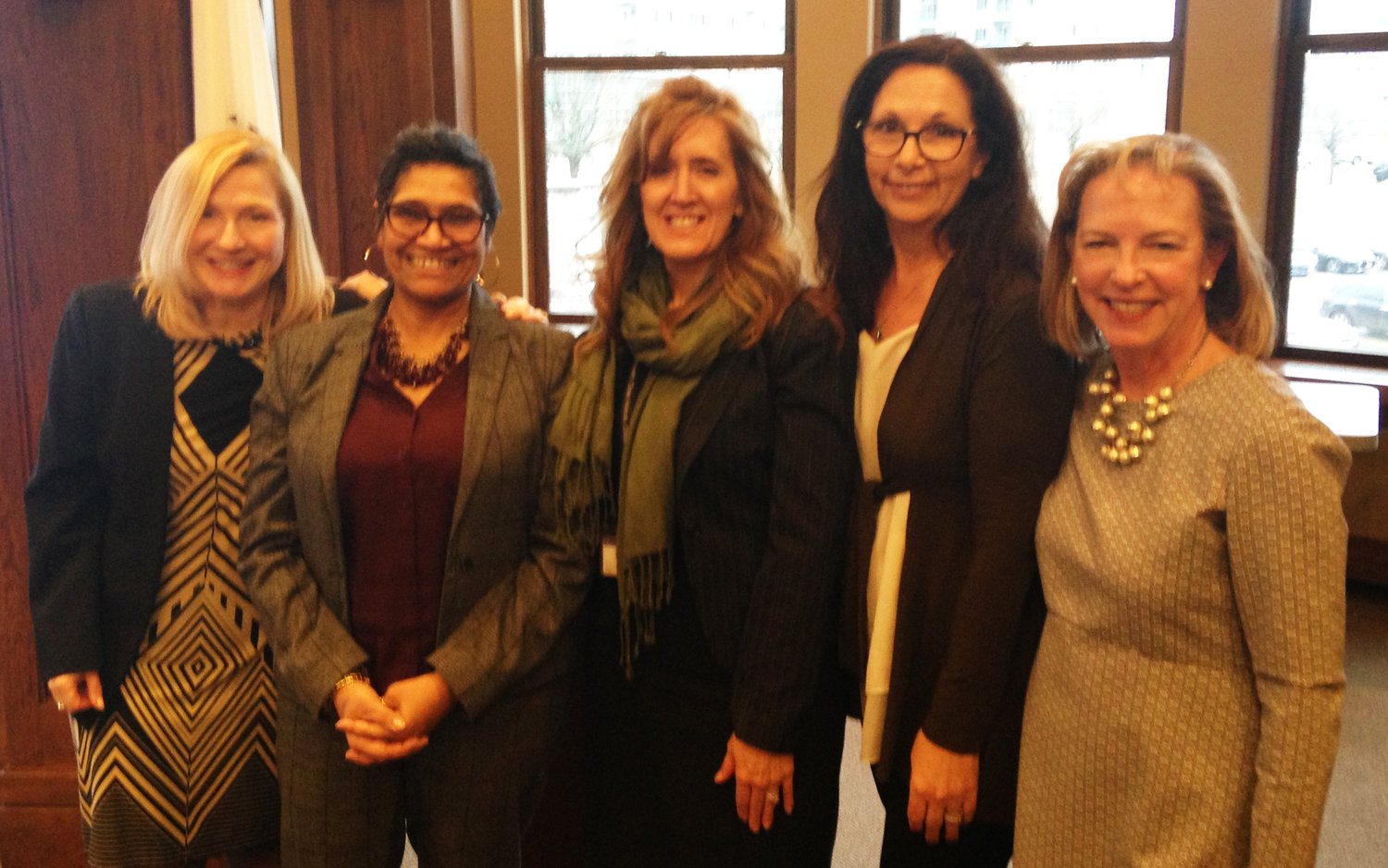Rethinking assumptions around child neglect in RI
New issue brief by Rhode Island Kids Counts on child abuse and neglect offers opportunity to change the conversation
Clearly, there is room for discussion on both sides about the merits of the award: the development of BH/Link, a 24/7 triage and counseling center, is a plus. So, too, are the efforts around developing parity for behavioral health and mental health insurance coverage.
On the not-so-good side, there is the continuing struggle of DCYF to manage its caseloads and interventions to prevent deaths and near-deaths from neglect and abuse in young infants and children. There is also the continued lack of funding for community mental health centers.
The question is: will there be any reporters from Rhode Island traveling to Washington, D.C., to cover the event? Will anyone ask what were the criteria upon which Gov. Raimondo was selected?
PROVIDENCE – On Thursday, Feb. 7, Rhode Island Kids Count released one of its relentlessly powerful issue briefs, reporting on “Infants and Toddlers in the Child Welfare System,” which began with a kind of evocation of Charles Dickens’ prose: “The first 1,000 days of life for a child are a time of great opportunity and great vulnerability.”
Experiences during that time, the brief continued, were “critical to healthy brain development and positive relationships with parents and caregivers and lay the foundation for social, emotional, language, and physical development.”
When abuse and neglect occur, particularly in early childhood, what Dickens might have called the worst of times, the dark descent into both a parent’s and children’s hell, the brief reported: “Children who experience toxic stress [emphasis added] during early childhood can experience disruption in the development of their brain and biological systems, which can result in short-term harm and long-term negative outcomes.”
These were not startling findings or observations; the answers to the larger, more difficult questions remain a work in progress: What are the kinds of successful interventions that can prevent the high incidence of abuse and neglect in early childhood in Rhode Island? How do such interventions connect with the need for safe, affordable housing and good-paying jobs? And, how does early trauma experienced in a parent’s life play out in his or her relationship with a child, where the trauma gets repeated?
Just the data
How prevalent is neglect and abuse in early childhood in Rhode Island? Leanne Barrett, senior policy analyst for Rhode Island Kids Count, began her detailed analysis with the data facts: In Rhode Island [as well as nationally], very young children were more likely to experience abuse and neglect than older children. “In 2018, nearly one in four victims of child abuse and neglect were infants and toddlers under age three, [some 856 out of 3,505 victims].”
Not surprisingly, under the definition of “neglect,” which comprised some 77 percent of such allegations, exposure to domestic violence, drug and alcohol abuse and lack of supervision were the most common types of neglect for children under the age of three.
That was the starting point for a response panel to reflect on the findings, which included an array of experts: Trista Piccola, director of the R.I. Department of Children, Youth and Families; The Honorable Lia Stuhlsatz, Associate Justice, Rhode Island Family Court; and Susan Dickstein, president, Rhode Island Association for Infant Mental Health.
For more than an hour, Piccola, Stuhlsatz and Dickstein shared their thoughts about the interventions that were now in place in Rhode Island to develop solutions to the problem, including the Safe and Secure Baby Court to support young, first-time parents, the Pivot to Prevention program to change the operational direction at DCYF, evidence-based home visiting, paid family leave, which left about 15 minutes for questions and dialogue.
Moving beyond the data
What was actually said by Piccola, Stuhlsatz and Dickstein provided a fascinating glimpse into their own deepening understanding of the nuances involved in their work – even if the comments were not covered in the perfunctory story published the next day in The Providence Journal by reporter Madeleine List, nor directly addressed in the Rhode Island Kids Count “Issue Brief.”
Piccola began her brief talk by announcing: “I am not who you think I am,” describing how a recent DNA analysis revealed that her heritage was not Italian. Rather, her father, an orphan, had been adopted into a large Italian family. The discovery by Piccola about the actual roots of her own identity, she said, reinforced her understanding about “how identity gets wrapped up in the early years of life,” and how children respond to being in a nurturing environment.
Stuhlsatz, in turn, who described herself as “not a baby person,” talked about her interactions with young parents, particularly young mothers, as part of the pilot program, Safe and Secure Baby Court, providing first-time parents with infants from birth to age 12 months with support services, focused on safety and attachment. Stuhlsatz likened the process to a scene from “The Lion King,” with the parents often holding up their infants to her as the judge, in a rite of the pride that the new parents showed in successful bonding with their infants.
Dickstein, the third speaker, began by focusing on an exercise she had participated in at a recent national conference in Scottsdale, Ariz., talking about how each of the participants had to answer the questions around the story of their name: “What did your name mean and where did it come from?”
For the all the facts and data points contained in the “Issue Brief,” the nuances shed far more light onto the art of parents nurturing infants, around the shaping of identify, around the call and response involved in parenting, in ConvergenceRI’s opinion. The facts are nothing without their nuance, as Norman Mailer once wrote.
Impertinent questions
The audience attending the presentation of the new Issue Brief included many of the more knowledgeable members of the Rhode Island clinical- and community-based health and social services programs focused on children: Dr. Pamela High, professor of Pediatrics and director of the Division of Developmental-Behavioral Pediatrics at Brown University; Ana Novais, executive director at the R.I. Department of Health, along with her colleagues, Kristine Campagna and Blythe Berger; Dr. Patricia Flanagan, co-founder of PCMH-Kids; Lisa Guilette, the executive director of Foster Forward; and Peter Marino, executive director and CEO of Neighborhood Health Plan of Rhode Island, among others.
There were questions about intergenerational trauma and if the children of parents who had been involved with DCYF represented a pipeline for potential neglect. Another question focused on the importance of including fathers as part of the care-giving equation.
Peter Wells, the editor of publisher of The Providence American, asked a respectful but penetrating question. Wells wanted to know how data around child abuse and neglect correlated with issues around poverty, economic well-being and diversity, which seemed to be missing from the issue brief. Elizabeth Burke Bryant, executive director of Rhode Island Kids Count, answered that they were still trying to get at that data.
Another member of the audience asked the panel of experts: how did access to safe, affordable housing fit into equation. Piccola responded by saying the problem around access to affordable housing was an enormous one in Rhode Island; at a recent meeting of Gov. Gina Raimondo’s leadership team, when asked to name, in one word, the biggest issue, Piccola said she answered: “Housing,” because it is such a significant issue, because it cuts across everything.
Recovery housing for moms and kids
Call it serendipity. Earlier that morning, ConvergenceRI had met with Holly Cekala at Olga’s Cup + Saucer, a hub of innovation in Providence, to learn more about her new efforts to create recovery housing for women and their children, under age six, under one roof, as part of a new enterprise, Trinity Inn, LLC, located in Portsmouth, with a target opening data in April.
Access to recovery housing for women and children, in many ways, appears to address one of the key gaps in many of the strategies related to addressing the complexities of child neglect and abuse and their connection to economic and substance use issues.
ConvergenceRI had suggested to Cekala that she meet with Barry Lester, the director of the Brown Center for the Study of Children at Risk, who is pioneering new strategies and treatments around neonatal abstinence syndrome [withdrawal from drugs by newborns after delivery].
In fact, Cekala had already been “connected” with Lester, in a story by Casey Nilsson in the December 2018 story published by Rhode Island Monthly, “The New Families of the Opioid Crisis,” although they had not yet met in person. As reported by Nilsson, Cekala had reached out to Katie Gonzalez, helping her get on the road to recovery, when Cekala worked at the Anchor ED program at the Anchor Recovery Community Center. Cekala, Gonzalez said, “planted the seed for me.”
Lester was also featured in the story, as part of a tandem duo with Dr. Adam Czynski at Women & Infants. Through his research clinic, Lester cares for and tracks the neonatal abstinence syndrome population, seeing five or six babies at any given time, helping with swaddling, feeding and sleep strategies. “About three-quarters of the clinic’s babies are in foster care,” according to Nilsson.
A similar statistic hovers over the work at Women & Infants nursery, regarding some level of DCYF involvement. In 2018, between Jan. 1 and Aug. 31, 51 Rhode Island infants were removed at birth due to their parents’ drug use.
In addition to nuance, connectivity and convergence are vital to developing solutions to child neglect in Rhode Island, as well as being willing to include in the conversation the diseases of despair: deaths from alcohol, suicide and drugs, connected to economic displacement and family disruption, particularly for people between the ages of 25-34.
The bottom line is much about dignity and respect in work: providing jobs with good wages and an opportunity for advancement, with a safe, affordable place to live, and not the prospect, as Reel Big Fish once sang, “Well, I know you can’t work in fast food all of your life.”
One more missing ingredient
Surprisingly, one initiative not mentioned in the Rhode Island Kids Count “Issue Brief,” featured in any of the recommendations, not discussed by any of the expert panelists were the ongoing efforts to create Health Equity Zones in the state. There are currently nine operating health equity zones in Rhode Island, with a plan to expand the number of HEZs recently announced.
The theory and practice of Health Equity Zones is to focus on developing community-based solutions to the issues of health equity and social disparity, given that only 10 percent of health outcomes are determined by what happens in a doctor’s or nurse’s office.
Last year, The Rhode Island Foundation invested some $3.6 million in the work of six health equity zones in Rhode Island, signaling a sea change shift toward prevention at the community level.
As an example, ONE Neighborhood Builders, a community housing corporation, the convener of a HEZ in Olneyville, recently launched a new HEZ project in January, working in Partnership with Project Weber/RENEW and The Center for Resilience. One program involves helping outreach workers to conduct Narcan trainings in areas designated as overdose hotspots; another program supports efforts to conduct mindfulness programs to increase coping skills and reduce risk behaviors among young parents.
Mindfulness training to increase coping skills and reduce risk behaviors among young parents. Now, that sounds like something that could easily be added to the recommendations section.
Also, investing in new initiatives such as Trinity Inn in Portsmouth, a recovery house for women with children under one roof.
Broadening the conversation
The new “Issue Brief” on infants and toddlers in the child welfare system in Rhode Island is a good start to a much-needed, broader conversation, where the discussions can collide and converge, focusing on housing, economic opportunity, health equity, and community.







